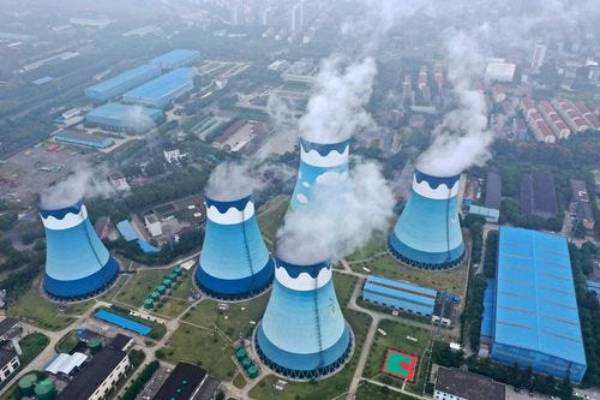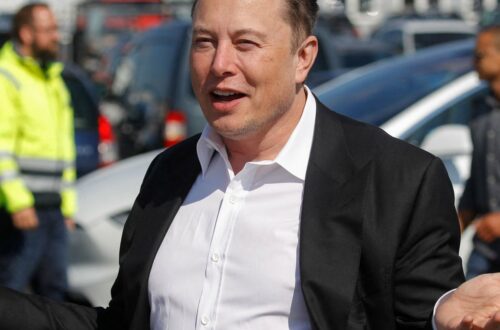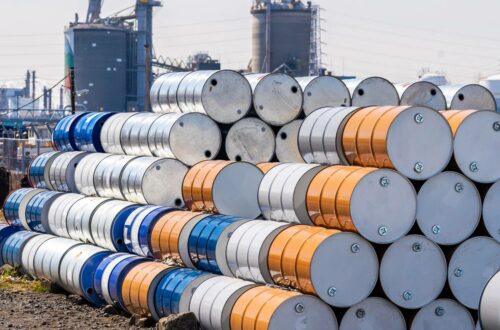
The energy emergency couldn’t possess come at a more awful time for environment
Chinese authorities are requesting coal plants to drastically increase creation. The European Union is confronting a revolt over its yearning Green Deal on environment. US President Joe Biden is appealing to OPEC countries to support oil creation.
So much for the battle against the environment emergency – it’s the energy emergency that is coming first. Also, it couldn’t have come at a more essential time.
In only three weeks, pioneers and moderators will meet for the COP26 global environment talks in the Scottish city of Glasgow. Force was working for putting an end date on coal and accelerating the worldwide progress from environment modifying petroleum derivatives to renewables before the emergency hit.
Yet, a surge back to non-renewable energy sources is stressing a few specialists that this second in time could dial back that progress, especially on the phaseout of coal, presently in nearer reach than at some other time ever.
“The concern with China’s force crunch is that it gives off an impression of being reinforcing the contention of supportive of coal interests there that the progress to renewables is occurring excessively quick,” said Christine Shearer, Global Energy Monitor’s program chief for coal, which tracks the utilization of petroleum products all throughout the planet.
With winter quick drawing nearer and the worldwide economy bouncing back from the Covid-19 pandemic quicker than the world had arranged for, legislatures are being compelled to go after wellsprings of energy that are promptly accessible. The framework that exists to tackle energy from renewables like breeze and sun oriented basically isn’t sufficient to fulfill need.
“A ton of chiefs are somewhat terrifying here and there about the social reaction,” said Lisa Fischer, program pioneer at the European environment think tank E3G.
Tossing more cash at non-renewable energy sources isn’t an answer, she said, and some transient arrangements are incongruous to longer-term supportable objectives.
A superior reaction would be to “turbocharge” subsidizing for sending inexhaustible and energy effectiveness programs, including getting foundation projects that were hampered by the pandemic, off the ground.
What’s more, there involves the polarity of the emergency – the world can by the same token “turbocharge” endeavors in renewables, or dial it back, and incline more on petroleum derivatives, as is occurring now.
An international wreck
There are a few purposes behind the energy smash, past the bounce back from the pandemic. Force from renewables has been beneath assumptions – in the UK and mainland Europe, the late spring was less blustery than expected, so wind power under-conveyed. In China, lower precipitation implied less energy from the country’s hydropower plants.
In addition, Russia has been blamed for easing back gas supplies to Europe to energize a quicker endorsement measure for its Nord Stream 2 gas pipeline that runs under the Baltic Sea to Germany. Gazprom denied the allegation to keep going month, yet on Thursday, Russia’s Deputy Prime Minister Alexander Novak said expressly that gas costs would cool if Berlin guaranteed the undertaking.
Chinese specialists have kept piles of coal imported from Australia sitting at docks for quite a long time, declining to show Australia it will accept its products as the two nations stay cold over Canberra’s requires an examination concerning the starting points of Covid-19. That has simply added to the force lack in the country.
Chinese authorities told organizations in the country’s modern heartlands last month to restrict energy utilization to diminish interest for power, state media revealed. A few regions experienced power outages in homes as provisions were cut. Yet, as the emergency develops and worldwide interest for Chinese merchandise takes off, Beijing exchanged tack, advising coal diggers to add an astounding 100 million metric tons to creation, state media revealed Thursday.
China was at that point driving its monetary return with many new coal plants, yet the later expansion underway is an issue for COP26 – China was simply beginning to give indications it was prepared to have an impact in putting an end date on the non-renewable energy source.
Chinese President Xi Jinping declared only fourteen days prior that his nation would quit financing coal projects abroad, eliminating the world’s greatest monetary supporter of petroleum derivative universally. It has since gone under pressure, notwithstanding, to do more to slow down coal at home.
China has said it intends to top its emanations at some point before 2030, and hit carbon lack of bias by 2060. In any case, its whirlwind of coal plant constructing and expanded creation makes that much harder an objective to envision.
An European split
China isn’t the only one. Even with this emergency, European pioneers are flagging that petroleum products are difficult to stop.
Last month, the UK started up an old coal plant to satisfy power needs. What’s more, a few nations in the European Union are thinking about keeping coal and oil-consuming plants open past their conclusion dates to stay away from comparative force cuts.
It’s a hit to the significant additions Europe revealed last year, when renewables created more power than petroleum derivatives interestingly. In 2020, 38% of power was conveyed by sustainable power, contrasted with 37% by petroleum derivatives.
It has additionally caused a crack in the EU parliament, where the environment intersection is quite obvious. Notwithstanding a pressing emergency, a few chiefs say without a viable transient activity intend to counter shoppers’ swelling energy charges, the EU’s Green Deal will lose support.
Hungarian Prime Minister Viktor Orbán is driving that camp, accusing “officials in Brussels” for consistently raising the cost on energy from petroleum derivatives.
Kadri Simson, European chief for energy, then again, said the Green Deal would give the “main enduring answer for Europe’s energy challenge” and that more renewables and further developed energy productivity were the appropriate response.
“We need to proclaim the current value climb has little to do with our environment approaches, and much to do with our reliance on imported petroleum derivatives and the relative costs,” Simson said Wednesday.
“Wind and sun oriented have kept on creating the least expensive power in Europe as of late. They are not presented to value unpredictability.”
A thump on impact in the US
In the US, an emergency is fermenting around taking off gas costs, an issue that is attached to the more extensive energy issue. A few nations that are attempting to get sufficient flammable gas are going to oil to fill the hole in the force supply.
In August, Biden requested of the OPEC+ – a coalition of significant oil-creating countries and their partners – to increase worldwide oil creation after fuel costs took off, as an increment in supply would mellow costs at the siphon.
It hasn’t worked – OPEC+ said Monday it would just steadily add supply to the market. In any case, Biden’s calls for more oil sit at chances with his environment plan, which incorporates boosting the country’s electric vehicles market.
As per the International Energy Agency, to arrive at net-zero by 2050 – where the measure of ozone depleting substances radiated isn’t more noteworthy than the eliminated from the air – the world needs to quit extending petroleum derivative creation.
Yet, a few specialists are confident that pioneers will pick the harder yet seriously remunerating way at COP26. While the UK has gotten back to coal for the time being, its branch of Business for Business, Energy and Industrial Strategy on Thursday declared designs to completely decarbonize its power area 15 years sooner than it recently arranged.
“Going into the environment gathering, the scenery is showing the outrageous effects of depending on non-renewable energy sources – to my brain, I believe that could be sufficient to push a few nations wavering to truly twofold down on renewables,” said Charles Moore, overseer of the European Program at the research organization Ember Climate.
“I think UK is an incredible model. The UK just came out and focused on completely decarbonize the power framework by 2035,” he said.
“That is from the host of the environment meeting.”
Disclaimer: The views, suggestions, and opinions expressed here are the sole responsibility of the experts. No STOCK INVESTS journalist was involved in the writing and production of this article.





